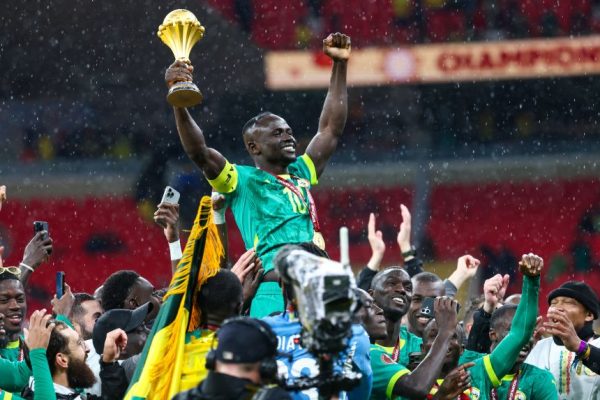by Adefolami Ademola
For some, life is a bouquet of roses, caked in the chocolate of wealth, splendour and every other adjective representing the ‘good life’. For some other, it is merely a dirge resonating from the gaunt throat of a weary and depressed body.
But most times, as humans still grasping the void called social status and class, we live as though others, not fortunate enough to be as we are, did so by a choice they made at some point in their previous life, whatever that means. So we build an edge of haughtiness around us and watch while humans, like us, whitewashed by the sweat of penury, become a bastion of bones, flesh, but devoid of a spectre of hope; that transient element that helps us to keep our sanity at times when life becomes a sickening mess. One such case of human neglect is Prosper.
Ekuise Prosper is a 20 year old boy, unlucky to be plagued with a disease whose containment is beyond the financial means of his single mum. At an age where people his age possess the freedom of choice, and are actively chasing a degree in a prestigious university Prosper crawls on all fours to use the convenience at his mother’s Agbor residence.
Ideally, we do not have a choice in the predicaments that befall us during the course of our mortal existence on earth. However, with the support of fellow human, responsive enough to happenings surrounding us—their fellow compatriots in this task called life—there is indeed hope for the future. But what happens when one is denied the support of people who are capable of being of assistance? Aren’t we disappointed, our hopes left in frost, and only sit down in worry—a bundle of suicidal thoughts and many gloomy things that disadvantaged humans can spell?
Prosper is left at the mercy of his mother, the only symbol of worth in his life, who has been a solid figure of hope in a life withering in relentless wants and cold, freezing hopelessness. Since his father died, life had become a chasm of weariness, a furnace that hell must wish to emulate. Even before the demise of the man who struggled through the clenched-fisted rigours of poverty to cater for his household, trouble had already been creeping in from various nooks and crannies of the house.
While a security man at Zenith bank, Mr Ekuiuse, Prosper’s father was arrested, albeit innocently, for a robbery attempt on the bank, by armed robbers. Later, after it became apparent that he was innocent of the allegations, the bank had him fired because he wept and threatened to place a curse on the bank’s management for being treated unjustly, unfairly, and left to suffer such impecunious fate, perhaps because of his poverty—the harsh reality of life here: a gateman cannot sue an organization. He does not possess the political muscle to do so.
In saner climes, when you lose a job, there is the possibility that, with retention of the drive with which you worked another job is but a call away. But in a country where employment is as difficult to grab as the condition of living, and poverty becomes a national anthem, an elegy that describes life, losing employment is equal to losing one’s life. Because here, in this part of the world, a brilliant degree is not a guarantee of employment. So, you could imagine how life became for the Ekuiuses, for the father who had to feed four children, a wife and himself. It was not a bed at all—not even one housing Roses. Life was hell; an opaque darkness filled with months of regret, self pity, and a journey down the dry throes of depression. The turnaround was swift, from a ‘managing’ home to one relegated to the leagues of penury. The Ekuiuses were poor after that sick letter came in.
In picking up the smithereens of his life, Mr. Ekuiuse would go on to get another job at UBA. But again, he was sacked in 1984—this is not George Orwell’s novel. Even though he had risen to the position of Chief Security Officer of the bank’s branch in Sapele, he was not given the privilege of being informed. One cold morning, he was sacked, after six years of tireless service to the job. And like that, just like that, he tucked it all in; all the pains, anger, bitterness and tears, he swallowed them all. He could not fight the bank. There was nobody supporting that cause. He was a poor, unknown man; just another Nigerian on the poverty side of the divide.
Maybe if his family, especially his wife who automatically took over the reins of authority, had been allowed to assess the token that the late father of four had in his account, they might have cushioned that money into fruitful use. But this is Nigeria; when you are a poor unknown, rule of law does not apply. The widow was denied access to her late husband’s savings because of the stupid regulations that aid the inflow of cash but impedes its outflow in Nigerian banks. And so, the widow, confused by the pace of the turnaround, became a frail shadow of herself—an illustration of what a human life should not be allowed to become.
When Prosper was diagnosed with a bone marrow problem, his life as he knew it was over. He wept. Life was hell. How does a person who still finds it difficult to eat two meals a day manage such an illness that assuredly needs millions to be resolved? The family was shattered. Trust mothers, his mother became a sorry mass of tears and hopelessness. To her, it meant that her son was dying, or almost dead. The Kernel cracking mill that Kashim Shettima, former governor of Borno state, had contributed to building due to the father being his friend did not have a proceed as such to speak of. Alhaji Kashim Shettima had invited Mr Ekuiuse in 2015 to Borno, and handed him a million naira to support his terrible situation. The wise man had invested that money by setting up a Kernel cracking mill in Agbor. But now, profits are non-existent. The mill could not take care of the son’s medical bills. It couldn’t even pay their rents.
I average 9, 000 steps during the week, always hitting my daily walk steps target on the Samsung health application. Most of us are mobile workers. We walk every minute of the day. But think of a 20-year-old active boy who crawls like a dog to do the least of activities expected of humans. He cries every morning he needs to urinate. The pain is unbearable; shattering even the steel resolve of a young man. But the absence of money becomes a problem. Throw in the double misfortune of being at the verge of ejection from their apartment, for owing a rent of two years—a total sum of N260, 000—then it becomes obvious that their lives are enmeshed in a pool of uncertainty—whether the landlord, who has after many pleadings, agreed to collect the rent debt in bits, or whether the only male child of the house would be killed by this thing he suffers from.
When asked if she wants our support to pay her rent, the poor widow says no. all she wants is for her only son to get well. She cannot bear to see the difficulties he goes through when urinating. She wants him to grow up, and be strong, like every normal child. Her child’s health is primary.
Early this year, Ehi’zogie, a poet and fraternal brother, began an expose on the life of the boy called promise. He had seen the boy. And like one, filled with the light of God, he wants a better life for Prosper, who did not bargain for his hard life. I paid attention, maybe a little. I was intrigued by the storyline. Perhaps, it was my poets’ instinct calling me to discover raw materials for another poem. But work, the quest for survival made it fizzle, like a fainting wish, in my heart. But this week another post by Ehi’zogie jolted me to reality. I was angry at myself for being so consumed by the trivialities of life that I ignored a call for the salvage of a dying soul. I was born poor, so I know what it feels like to be in that state. It’s the reality I wake up to. Ehi rose to the occasion. He met people who could have helped. But human divisive vanities became a stumbling block. Some people would not help because Prosper is Igbo and not Yoruba. Others do not want to lend a hand to the fate of a Christian brother. He must become a Muslim before they could. The Devils called identity, religion, race and ethnicity almost disrupted a call to rehabilitate humanity. Surprisingly, the peddlers of this ruthless ideology are youths, who will lead the future.
The Ehi’zogie that I know is a strong mind. After I watched him make the shortlist of the Korea/Nigeria Poetry Fiesta, alongside yours truly, for the second time in a row, I knew I was going to befriend him. So, pained by the travails of Prosper, he would go on a solo drive to get close to the family, share words of encouragement, and help with finances when it was inevitable; these he did alone, because he was living the dream of God for creating humanity. And with his persistence, the tales of Prosper is generating interests from places he never expected. I told him I wanted to help. I had to be a part of these, too. It’s time to let go of the ethnic, race and religious accoutrements that came as default configurations when the first man ate that fruit, according to biblical references.
Identity divides us. Ethnicity, tribalism, and religion, too. As youths, we should be concerned about people. We cannot be divided by things that should bring us together. On Facebook, Ehi’zogie wept. He was sad that GoFundMe would not allow him create an account due to race issues. He is a human being. He does not see colour, religion and ethnicity; why should the rest of the world do? He could not understand why refusing to stand up in the rescue of a soul is national poise. It still baffles him how we lost the humans in us. The barbaric roasting of people in Ikorodu, a place regarded as the headquarters of crime in Lagos, justified this claim. Humans take human lives without as little as a crease of remorse or worry around their face. Ehi’s post made me cry, too. I want to help humanity by staying true to the Prosper narrative.
Dr E. Elozino at Dayspring Specialist Hospital, Agbor, says the surgery for Prosper’s bone marrow transplant would gulp between 5-10 million naira. The surgery would not be possible here due to inadequate facilities. Prosper has to be flown outside the shores of the country. In response to this, concerned youths—Ehi’zogie, myself included—have launched an initiative for a donation to the Prosper’s treatment. Although talks are ongoing with experts of the medical profession, to know if the surgery could be done at a cheaper rate, the postulation is to start a rallying call to arouse interests.
God is merciful, irrespective of the flaws or attitude of humans. As such, this is a rallying call to us to discard the religious sensitivity that helps us to successfully look the other way when we could have helped a fellow human. Let us banish the ethnic and tribal sentiments. This is a call to everyone; youths, adults, teenagers, and grown-ups alike, to step into the case of Prosper. Save a soul.
It is obvious that we cannot do everything at once. But it is also true that we can do something at once. For some of us, this is the only chance we would have to touch a life. Let us make this count.
Donations are solicited for the bone marrow transplant of Ekuiuse Lucky Prosper. Doctors say if anything is to be done, now is the time. Every minute that passes moves Prosper a little closer to his 6-feet grave, if nothing concrete is done.
Omoregie Osakpolor, a documentary photographer and social activist, has taken images of the young boy in his moments of pains, tears, sweet and blood. Ehi’zogie has relentlessly chased this cause, too. Because I am involved, you should be too. Individually, we are poor and cannot achieve much, but collectively, there is no limit to the possibilities that abound. Save a soul today.
For transparency, the contacts of family members, and the account details of young Prosper has been placed. Feel free to call any of the family members. And when the light of God puts it in your heart to make a donation, the account details are available; Prosper’s account details:
Joan Chioma Ekuiuse
(Prosper’s sister, youth corps member serving in Asaba, Delta state, who stopped serving jut to look after her dying brother –
08169548580.
Nwakaego Patricia Ekuiuse
(Widowed mother of Prosper) –
08167146071.
Dr E. Elozine
(Dayspring Specialist Hospital, Agbro, a privately run specialist hospital known for managing kids like this, and one with records that astound the human mind –
08033459813.
ACCOUNT DETAILS:
Account name: Ekuiuse Lucky Prosper
Account number: 0072380935
Bank: Diamond Bank
There should never be another human left to suffer when we can collectively do something about it.
Save Ekuiuse Prosper!!! Think Tomorrow!!!
Yes, we can…
Op–ed pieces and contributions are the opinions of the writers only and do not represent the opinions of Y!/YNaija













